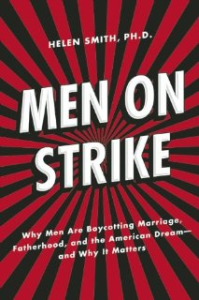A day late Memorial Day post.
The power of a harmonica leading into battle (WW2). I saved this article when I was going to the University of Tennessee and was home for the weekend or over the summer, apparently in 1976. It was in the Sunday Knoxville News Sentinel newspaper and I was moved enough to cut it out and then manage to keep it all of these year. It deserves a larger audience and kudo’s to Don Whitehead, a News Sentinel columnist and WW2 veteran (this is a first hand account) for writing it.
On a Soldier’s Love Song
By Don Whitehead, Knoxville News Sentinel
THERE ARE MEMORIES which will not go away. . . And one of them is the memory of a boy playing a love song on his harmonica before going into battle 33 long years ago… I wrote this story 14 years ago – but it still haunts me and that is why I tell it once more… This was the story:
Every now and then when I have the radio switched on I will hear an orchestra playing the great Cole Porter song ”Night and Day.” And to me it’s a bitter-sweet melody that doesn’t conjure up visions of dancing or gaiety or star-lit skies as perhaps it should. Each time I hear it I think of a dark forbidding Sicilian coastline, a forgotten town named Brolo and a boy playing a harmonica in the last minutes before an assault landing on an enemy-held shore. And he was pouring his heart into a love song.
I don’t even know this boy’s name. I only know that 16 years ago he was a tall, slender soldier with a sensitive face and long fingers and that he must have been very much in love with a girl back home. That’s all I ever knew about him.
Cole Porter, I’m sure, would have been surprised had he known that no grouping of violins, brass horns, reed instruments and drums ever played his “Night and Day” with more feeling and beauty than it was played by this unknown boy on that night long ago. And he would have been as deeply moved as those of us who heard the tune played on the eve of the battle.
It’s difficult to re-create the mood and describe the setting which existed on this remembered night. But the remembrance has haunted me over the years, and I’ll try to put into words what it was that made this night so different from other times when troops were preparing for such a landing.
THE TIME WAS August, 1943. The Germans were retreating on the northern coast of Sicily toward the city of Messina. They were fighting a stubborn rear-guard action along a road which runs near the sea, fighting for time to permit their main forces to be pulled back and evacuated across the Strait to the comparative safety of the Italian mainland.
Gen. George Patton conceived the idea that if a battalion of the Third Infantry Division could be landed behind the German lines at a town called Brolo, the enemy’s orderly retreat would be thrown into confusion and many of them captured. A veteran battalion commanded by Col. Lyle Bernard, a Pennsylvanian, was chosen to do the job.
The battalion embarked with its weapons on LSTs with as much secrecy as possible. And when night came the small fleet – protected by a cruiser and three or four destroyers – steamed along the dark coast held by the enemy.
We arrived at the rendezvous point, a few hundred yards off the beach at Brolo, about midnight. The small hill rising behind Brolo was only a dark blur against the sky and there was no sign that the enemy was aware of this threat to his escape route. There were no flares or flashes from shore batteries.
Soon the order was given on our ship for the troops to go below and take their places in the amphibious vehicles called Ducks. Here they were to wait for H-Hour when the signal would be given for the assault to begin. One company, supported by tanks, was to entrench itself on the beach below the coastal road. The other two were to continue through the town of Brolo to the top of the hill where they were to command the heights looking down on the road. If all went well, the German retreat would be broken at this point.
The men filed into the dimly lit hold of the ship, carbines and equipment banging against the steel sides of the Ducks. And then they sat waiting for H-Hour and you could feel the tension begin to build up. This as one of those times when your hands felt clammy and beads of perspiration broke out on your forehead and your stomach was a tight knot of fear — because the unknown was out there in the blackness of the night.
YOU COULD SEE THE FACES of the men around you only dimly. You heard the soft curses and the griping. The waiting didn’t make things any easier because there was now time to think and it was better not to think — with no one knowing what the next few hours would bring.
Just when the tension seemed unbearable, this tall, dark haired boy lifted his harmonica to his lips. He began softly to play the melody “Night and Day” . . . “Night and day, you are the one . . . “ The music came out thin and high and sweet. The banging of weapons and the griping of voices stopped. Everyone in that ship was listening to the music and I suppose each man there was mentally singing the words. There was no sound though, except the sound of the harmonica.
It was a wail of longing and love played with ineffable sadness. The notes rose and fell in the darkness with an emotion that held you breathless and stirred you inside. You knew that this was a love song played for a girl somewhere back home. Perhaps she was a girl living somewhere in the hills of Tennessee or North Carolina or Kentucky or on the plains of Kansas. But wherever she was, this boy was telling her what was in his heart — and telling it better than he ever could tell her with words.
I don’t know whether the boy realized himself what he was doing. I think he was lost in the music. But for a fleeting time, every man there forgot about war and fear and the danger of the unknown. They were given a brief release from themselves as they listened to the clean, clear notes that had a sobbing sound to them. And no one moved or made a sound for a fear that it would end.
IT DID END, of course. And when the notes died away there was a long hush. And then there came the grinding clank of chains as the massive ramp begin to lower in the front of the LST. An officer shouted a command and the drivers started the engines of their vehicles. Then the ducks began lumbering from the ship into the water and churning through the night toward the beach below the dark blur of the mountain.
The Germans were caught by surprise. But they quickly recovered and counter-attacked with tanks. The company on the beach was smashed. Those who survived escaped to the hill to join the companies holding the heights and they battled for their lives all that day and through the night — until a rescuing regiment broke through to drive the enemy away.
When the relief arrived, the troops came out of their holes and stumbled wearily down the hill. But whether the boy with the harmonica was among them I never knew. There was no way of knowing, or perhaps I was afraid to ask.
THAT’S ALL THERE IS to the story. What happened was of no importance in the war. But ever since that night I sometimes find myself wondering if the boy ever came home — and if the girl back home ever knew how much of his heart he had poured out in a love song back there near the bloody beach at Brolo.
It’s a pity if she never knew.









